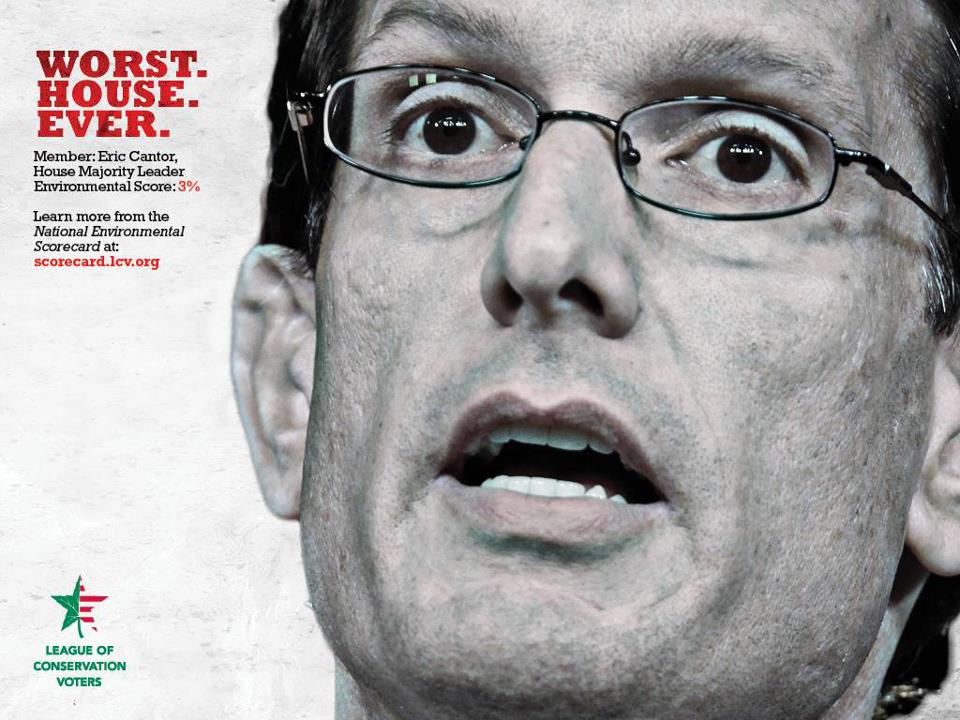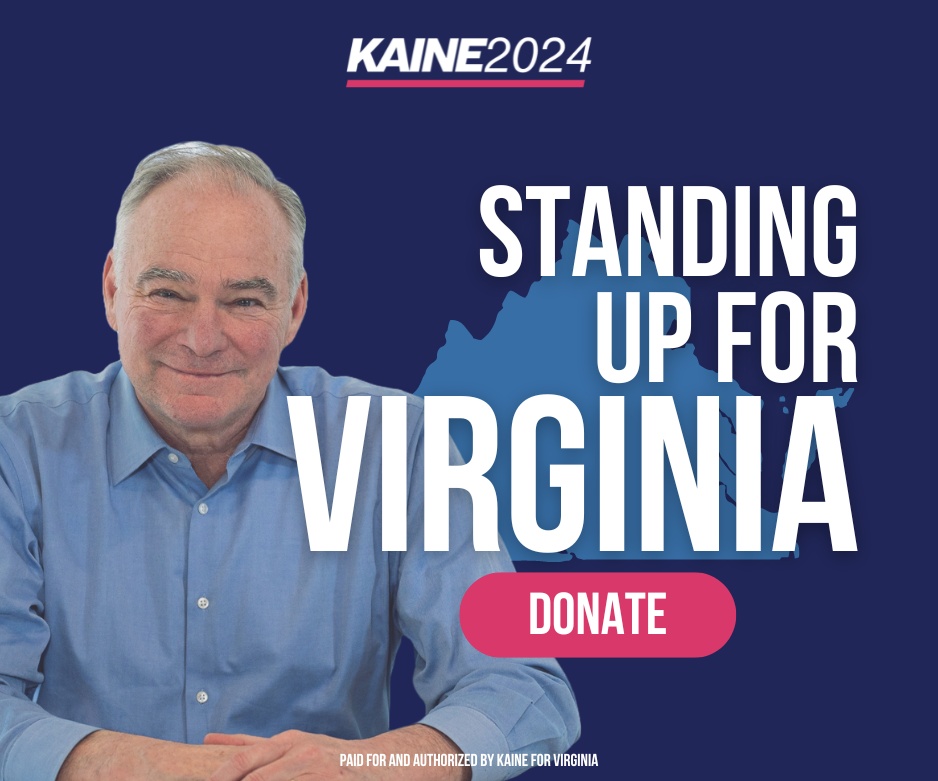 On Friday, I had the opportunity to interview Arlington County Board Vice-Chair Jay Fisette, who recently announced for reelection to another 4-year term. Fisette has served on the Board since 1998, including as chairman in 2001, 2005 and 2010. Among other accomplishments, Fisette points to his “2010 initiative to develop a Community Energy Plan…designed to ensure Arlington’s sustainability and competitiveness for decades into the future;” his “Urban Agriculture initiative [along with Vice-Chair Walter Tejada] to further the community’s health, equity and sustainability goals;” and his advocacy “for smart growth and the principles of New Urbanism, such as the importance of linking land use and transportation, providing robust transportation options and designing inviting public spaces.”
On Friday, I had the opportunity to interview Arlington County Board Vice-Chair Jay Fisette, who recently announced for reelection to another 4-year term. Fisette has served on the Board since 1998, including as chairman in 2001, 2005 and 2010. Among other accomplishments, Fisette points to his “2010 initiative to develop a Community Energy Plan…designed to ensure Arlington’s sustainability and competitiveness for decades into the future;” his “Urban Agriculture initiative [along with Vice-Chair Walter Tejada] to further the community’s health, equity and sustainability goals;” and his advocacy “for smart growth and the principles of New Urbanism, such as the importance of linking land use and transportation, providing robust transportation options and designing inviting public spaces.”
Anyway, I wanted to talk to Jay Fisette right now, given his announcement that he’s running for reelection. Having voted for him since 1998, I wanted to see if there was any reason to change my mind this time around. After a great conversation, my clear answer to that question is “no, there’s no reason not to strongly endorse Jay Fisette for another term in office.” To the contrary, our discussion reinforced many of the reasons why I like Jay personally, and why I think he’s a great person to have on the County Board for another 4 years. Now, on with the interview.
1. We first ran through Jay Fisette’s accomplishments on the Board since 1998. He highlighted his response to 9/11, when he was Board chair, as well as building emergency response and award-winning online government capabilities (“that was not the case before 2001”). He said smart growth is something he loves, and which is “fundamental to what Arlington does,” with cycling being a special interest of his. He pointed to the Capital Bike Share system (“a far more practical alternative than many people realize”), noting that the system started here in Arlington, and that Arlington “will be doubling” the number of Bike Share stations in the county by next year. Finally, Fisette talked at length about energy and environment, including the Community Energy Plan noted above. Fisette called this plan “ambitious,” “transformational” and “practical.” He pointed out that Arlington is “one of the few” localities in the country with an energy element of its comprehensive plan, in addition to land use, transportation, open space, water management, etc. In Arlington’s case, Fisette says that the plan was developed with a great deal of input from the private sector, with a great deal of “buy in” and consensus.” It ended up with a “really ambitious plan” to reduce energy use and greenhouse gas emissions, even within the context of Dillon Rule constraints.
2. I asked Fisette about DC Mayor Gray’s vision/plan to make DC the “healthiest, greenest and most livable” city in the country, and whether Arlington County was aiming for something like that. According to Fisette, “that’s what we’ve done, that’s what our Community Energy Plan is…it deals with energy source as the main source of greenhouse gases…that’s the focus.” Fisette argued that if you don’t create an integrated, smart growth plan for development (transportation, land use, etc) – which Arlington HAS done – then you can “forget all this green building stuff, it doesn’t matter.” How the plan evolved was that increasingly, Fisette came to realize that “energy really was the focus and needed to be, energy is a framing honestly that some in the private sector can hear more easily than greenhouse gases.”
3. On the Virginia transportation deal that passed the State Senate yesterday, Fisette had some thoughts. For one, he argued that “what’s missing out of this conversation in Richmond…is how the money will be used…we have to be sure that that regional money at a minimum is going through a regional body where decisions will be made there…” For another, Fisette said it’s important to have sufficient time to “scour” this bill for exactly what’s in it before being forced to vote on it, as this is extremely complex stuff. The bottom line is that this is NOT the bill Fisette would have put forward and that the Senate bill was far better (e.g., “it didn’t raid the general fund”). Fisette said he doesn’t think that with this bill, the price of gasoline will “change a bit,” maybe a couple of pennies at most. The $100 fee on hybrids is something Fisette would definitely not support. Still, Fisette says he’s “supportive of an effort to find a compromise,” but it’s “hard to say right now” (for one thing, he doesn’t know all the details) whether this contradicts “enough of the key principles” (the #1 principle being the gas tax, which is why McDonnell’s initial plan was “terrible”). Fisette is definitely not thrilled with the bill, but says he’s “lukewarm supportive of the framework of the compromise that I’ve heard…I would change some key elements, but there’s nothing in there right now that would rise to the level that would suggest that I would vote against it.” Some of the bad things, like the hybrid fee, need to be worked on later. The “biggest outstanding question,” Fisette believes, “is how you use the money in the end,” and that “that would be the question with any governor.” Fisette noted that local governments like Arlington County have “a lot of authority about what gets built where.” Arlington, for instance, has a “long list of transit projects that need to be done,” such as additional entrances at the Rosslyn and Ballston Metro stops, enhanced bus service, bike sharing, streetcars, “that’s the beginning of the list and it goes on.”
4. Specifically on the streetcar project, I asked Jay Fisette for his thoughts, including on the opposition to the project. Fisette said this was a “key element of the sector plan update that allowed for a redesign of Crystal City, some additional density, all contingent upon an enhanced transit system which includes a streetcar …similarly [for Columbia Pike]…there was a re-envisioning of Columbia Pike…that was a serious, many meetings of the community in getting down and coming to agreement on the vision of what, 50 years from now, we wanted the Pike to look like.” According to Fisette, many people from Columbia Pike and throughout the county have participated in this process since 1998, and “part of that discussion was what is the transportation/transit system that has to be integrated with that land use plan to make it work, to sustain it…You don’t add density to the future if you don’t have a transportation system that allows it to work…has to be integrated and it has to be sufficient to sustain that density and not congest the roads and reduce the quality of life.” For Columbia Pike, “we looked at the range of options…[and] we know that the capacity for transit along Columbia Pike to carry that number of people today, from 16,000 a day to 30,000 a day, you cannot do with buses; you also know that a Bus Rapid Transit is not possible, is infeasible on Columbia Pike, because you require by definition…a dedicated lane.” In addition, the densities along Columbia Pike are “far higher than most places that would be using a BRT, so when you look at the bunching up of vehicles that would result over the years with the increase in traffic, and we want to incentivize and induce people to take transit, the streetcar is the best alternative, and that was determined, honestly, seven years ago.”
In the end, Fisette believes that Arlington County “looked at a range of alternatives,” “the community participated,” and the result was that two Boards (Arlington and Fairfax) plus “the broad base of the community…supported streetcar as the preferred alternative.” Of course, Fisette argued, there are always going to be people who weren’t part of the discussion over the years “for any number of reasons,” but “it would be a very high bar for me to choose to go back and invalidate 5, 7 years of work and community process when people came to those meetings, aired their concerns, raised their issues, came to a decision…if we were to change the transit system from a streetcar to something less, I would feel the requirement to change the land use plan…to begin [all over] again.” Where is opposition to the streetcar coming from? To some extent, Fisette believes that opponents are thinking about it as an “old technology,” but “the streetcar of 1920 is NOT the streetcar of 2013; it is a very different and much more environmentally efficient, smooth, higher capacity, sleek, contemporary vehicle.” The result is that more people will choose to ride the streetcar than a bus, and the “economic development spinoff and investment that will follow a fixed rail system generally is proven to be higher.” For instance, Fisette notes, the Rosslyn-Ballston Corridor success story would not have happened if it had been bus, or even an enhanced bus system, not Metro. Fortunately, we didn’t “short shrift the future” then, and we shouldn’t do that now.
Fisette believes that another possible source of opposition to the streetcar is coming from people who look at federal-level “sequestration and dysfunction…largely resulting from Republican extremism” as a “backdrop,” and “that carries over to how you view what your options are, what your resource levels are, it creates some uncertainty,” and “some people are reacting to that backdrop of uncertainty in the broader economy, applying it and questioning our own fiscal, economic sustainability and asking whether this is an investment we need to make.” Fisette’s response is that Arlington has an “incredibly sound fiscal system and budget – triple Triple A rating…can’t say it enough that we’re able to borrow money at the lowest possible interest rates on the planet, and that we have a plan that’s within our limits.” In addition, the money for the streetcar is coming from a “dedicated transportation fund…cannot be used for operating costs…schools…human services” so “if we chose not to do the streetcar, we would have to use that money for another transportation project…but you could not use it for other community needs.” [I noted that now is probably the best time ever for our country to invest in our infrastructure, and Fisette agreed]
5. I asked Fisette about the tremendous projected growth in population (+1.7 million) the region expects over the next few decades, and what his vision for Arlington is in this context? Fisette noted that Stewart Schwartz [of the Coalition for Smarter Growth] has a philosophy that’s “very consistent with Arlington’s philosophy; we are in fact his poster child.” According to Fisette, you “obviously can’t be putting 1.7 million people in Arlington, so they’re going to go throughout the region,” but the principle is that “the more you can enhance the core of the region, and the more you can identify mixed-use activity centers, the better.” According to Fisette, Tysons Corner is being fixed with this concept in mind – put a lot of housing there, because right now it’s a 9:1 ratio between commuters and people who live there. It’s also important, Fisette argues, for the region to work together and not be “constantly fighting one another for [new businesses, jobs, etc.].” Arlington has “plans in place for development, and there is capacity that’s unmet…we have room for growth…but we’re really careful to designate logical places along transit corridors…to ensure that it works…you’re not going to see us, or me, encroaching on the single-family neighborhoods.” For now, Fisette says we have the two Metro corridors plus the Columbia Pike corridor (where, by the way, heavy rail originally was considered and rejected). He also says Arlington is a hybrid of “urban” and “village,” “but we are a city..we’re called a county but we really should be called the City of Arlington…by all standards in this country…we are more of a city.”
6. On sequestration, Jay Fisette feels that Arlington County is well diversified, ergo is in a good position to weather it. “When I look around me…I know how desirable this is because of the location, the transportation, the great schools, all the rest…we’re going to have our ups and downs, but remember in the last 5 years, we’ve avoided most of the downs while the rest of the country was in turmoil; we’ve never gone above 4% unemployment…it’s been steady as you go.” And the tax rate goes up and down to find the right balance, depending on the economic climate.
7. Goals for Jay Fisette’s next term include a strong belief in government, in investment, and in sustainability, but also in a hatred of waste. So he’ll be “committed to insuring [Arlington’s] fiscal integrity and the appropriate investment…making those decisions to balance all those needs.” In addition, Fisette is focused on his energy and environmental work, “revisit the issue of [electric vehicle] taxicab certificates” and on finalizing the energy plan/greenhouse gas reduction strategy and “continue to implement.” Finally, Fisette talked a bit about his initiative to try and persuade people to use fewer single-use, disposable beverage bottles. He noted that tap water is clean and actually “more regulated than the bottled water,” and also that “80% of [those bottles] end up in a landfill or the ocean.”
P.S. I almost forgot to mention, Fisette noted that Arlington has the highest percentage of 20-34 year olds of any jurisdiction in the Washington, DC area. Per Remy, I joked “and they all wear brown flip flops.”
 Steven Brill has a must-read cover story in Time this week detailing how the federal government’s refusal to set rates for procedures, services and products means we all pay more for health care. I found this out first-hand last fall when my doctor tried to charge me $95 for a flu shot.
Steven Brill has a must-read cover story in Time this week detailing how the federal government’s refusal to set rates for procedures, services and products means we all pay more for health care. I found this out first-hand last fall when my doctor tried to charge me $95 for a flu shot.
 On Friday, I had the opportunity to interview Arlington County Board Vice-Chair
On Friday, I had the opportunity to interview Arlington County Board Vice-Chair 
 This is not a comprehensive list of “winners” and “losers” from the historic transportation deal in Virginia this past week. It is also NOT a comprehensive “winners” and “losers” list for the entire General Assembly session, just for the transportation/Medicaid deal. Feel free to add your own “winners” and “losers” in the comments section. Thanks!
This is not a comprehensive list of “winners” and “losers” from the historic transportation deal in Virginia this past week. It is also NOT a comprehensive “winners” and “losers” list for the entire General Assembly session, just for the transportation/Medicaid deal. Feel free to add your own “winners” and “losers” in the comments section. Thanks! I’m angry this morning. When I read the
I’m angry this morning. When I read the  Here are a few Virginia (and national) news headlines, political and otherwise, for Sunday, February 24.
Here are a few Virginia (and national) news headlines, political and otherwise, for Sunday, February 24.





